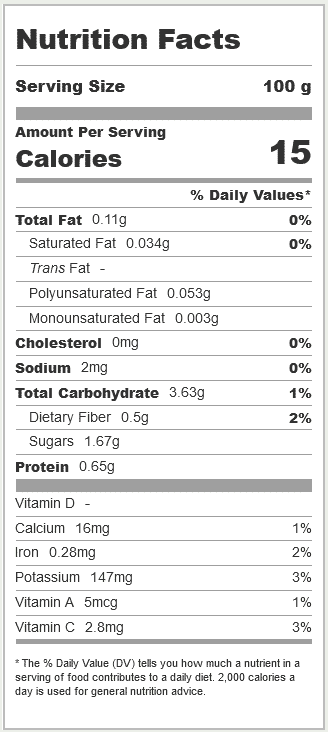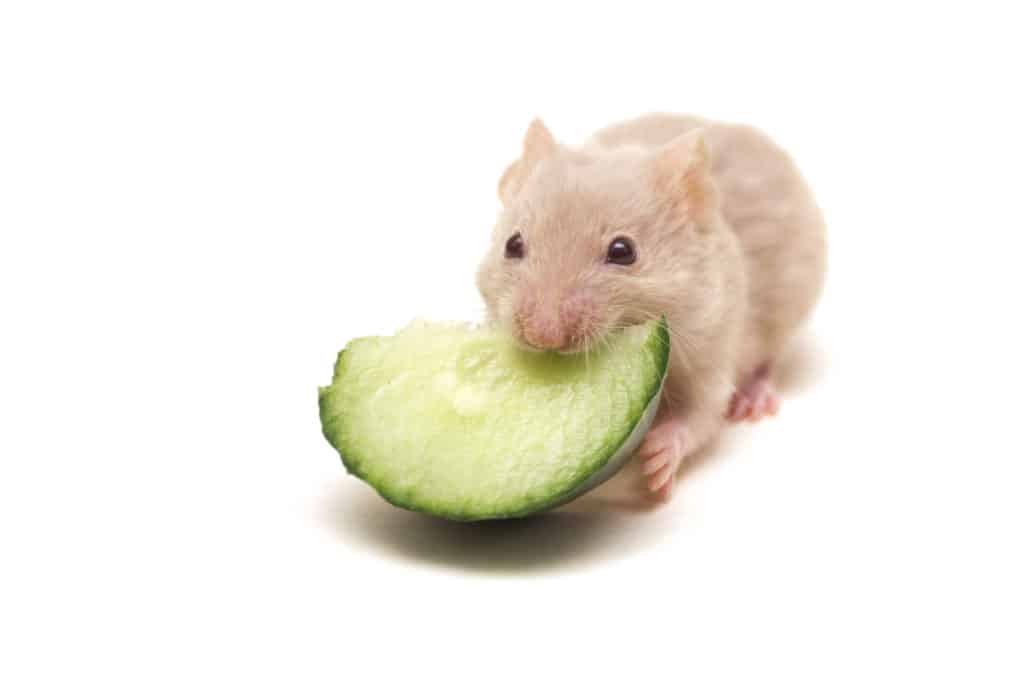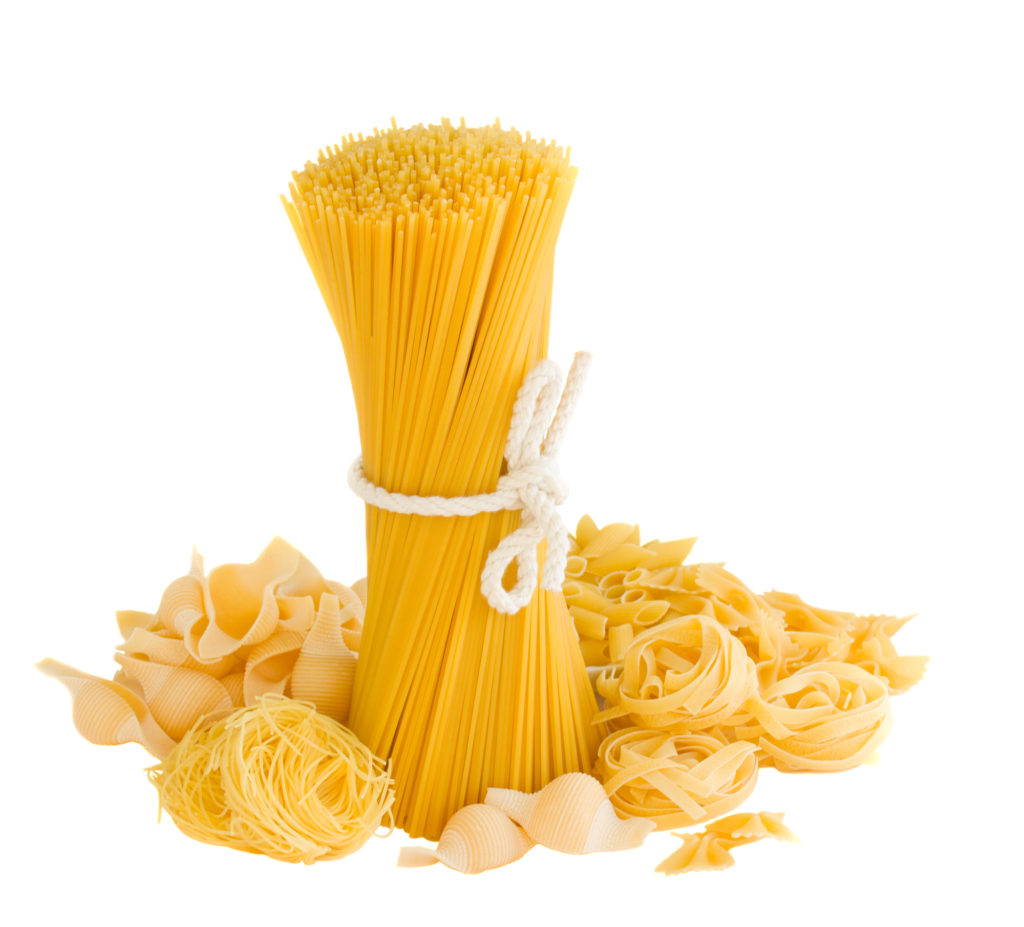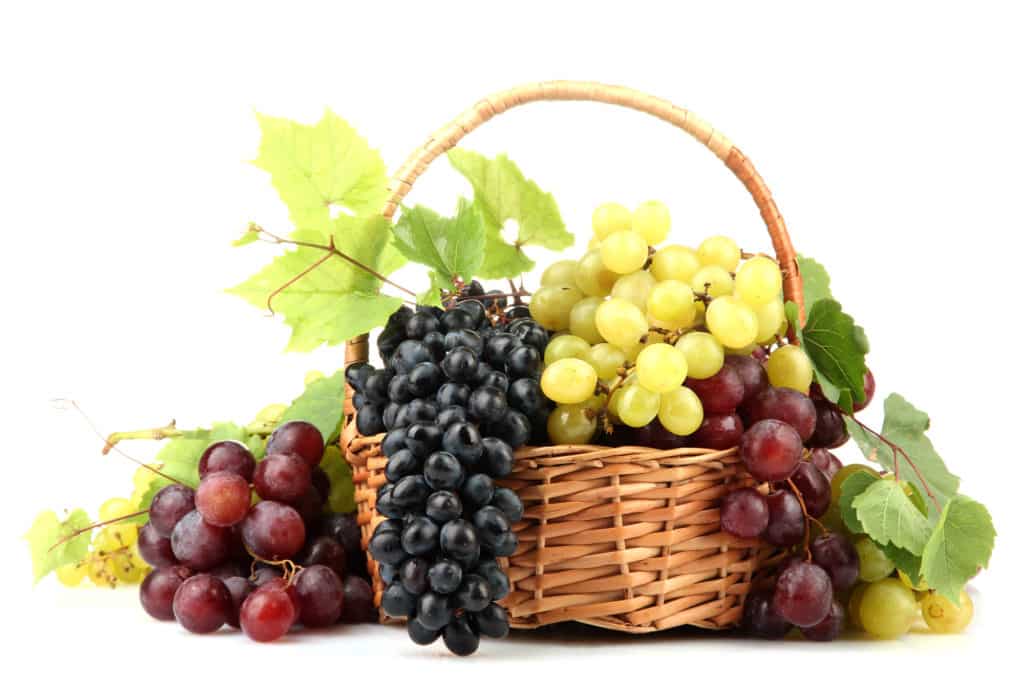I grew up in India. And as you may already know, Indians are crazy about cricket (the sport). So, while growing up, I played cricket a lot.
On most sunny days, after playing cricket for hours on end, my friends and I would often find ourselves in front of roadside shops, extremely tired and thirsty. There, immediately upon seeing us, the shopkeeper would take a cucumber, cut it into four pieces vertically, add salt on one side of each piece, chili powder on the other side, then join the four pieces together, and give the cucumber to us. My friends and I used to enjoy those cucumbers.
For us back then, cucumbers were god-sent gifts. They cooled our bodies and hydrated us, giving us the energy to play one more game. Moreover, the taste was addictive as well. I am still addicted to that taste.
If you are like me, I am sure that you, too, would love cucumbers. And if you own a hamster, you may have even thought of feeding it to your little friend as well.
But if you’re reading this blog post, it can only mean one thing – You did not feed cucumber to your pet hamster because you were worried.
Can hamsters eat cucumber?
What if I feed a cucumber to my hamster, and he gets sick?
How can I find out if my hamster got sick because of the cucumber I gave?
These might have been the questions that could have been troubling you until now. But in this blog post, you will find answers to these questions. You will also find out how much cucumber to feed to your hamster, when to feed, and what you should watch out for, while feeding cucumber to your hamster. So, continue reading.
Cucumbers
Vegetables or fruits?
Many people love cucumbers. But if you ask them if it is a vegetable or fruit, they might not have an answer. If you yourself are divided on the topic, it is not your fault. Because, technically, a cucumber is both a fruit and a vegetable. Botanically, cucumber is considered a fruit (Source: European Food Information Council). But when it comes to cooking, cucumber is considered a vegetable, mostly because it doesn’t taste sweet. So, regardless of whether you considered cucumber a fruit or a vegetable, you are correct.
Origin
Cucumbers originated in India almost 3,000 years ago (So, it’s no wonder we have found novel ways of eating it ;p). From there, it spread to Greece, China, and Italy (Source: Kitchen Project). The Roman emperor Tiberius was so fond of the fruit that he had it on his table every day. The Romans then introduced the fruit to other parts of Europe as well. Then, centuries later, during the age of European exploration, Christopher Columbus brought the fruit to the Americas.
Nutritional content in a Cucumber
Cucumber has several important nutrients that your hamster’s body needs.
You can find a list of nutrients in 100g of cucumber below. These values are only for reference. The exact amount of nutrients in 100g of cucumber might vary.

Source: Fat secret
Different hamster species vs. cucumber
Can all types of hamsters eat cucumber? If so, how much cucumber can eat hamster species eat? Continue reading and find out.
Can Chinese dwarf hamsters eat cucumber?
Chinese dwarf hamsters are very small animals. So, the amount of cucumber you can feed to a Chinese dwarf hamster is very less. At the most, you can feed an inch of cucumber per week.
Can Campbell dwarf hamsters eat cucumber?
Campbell dwarf hamsters are similar in size to Chinese dwarf hamsters. So, feed them only an inch of cucumber per week.
Can Russian dwarf hamsters eat cucumber?
Russian dwarf hamsters are small creatures too. So, stick to the feeding schedule of one inch of cucumber per week.
Can Roborovski hamsters eat cucumber?
Roborovski hamsters are smaller than other dwarf hamsters. But they are also more active than other dwarf hamsters. So, they can eat more than other dwarf hamsters. So, you can feed them an inch-sized slice of cucumber on alternate days.
Can Syrian hamsters eat cucumber?
Syrian hamsters are the largest of all hamster species. So, you can feed them two inch-sized pieces of cucumber on alternate days (Source: Just hamsters).
Things to watch out for
Is cucumber poisonous to hamsters?
No, cucumber is not poisonous for hamsters. Indeed, the opposite is actually true. Cucumber is a healthy vegetable that your hamster can eat. So, if you are a hamster owner, you don’t have to think twice about feeding cucumber to your hamster. Cucumbers won’t cause any health issues as long as you feed them to your hamster in moderation.
Can hamsters eat cucumber skin?
Definitely, cucumber’s skin contains a good amount of fiber as well as some vitamins and minerals. Therefore, peeling the skin will only reduce the amount of fiber, vitamins, and minerals in the fruit. So, feed the cucumber along with the skin. It is a healthy snack for your hamster. Moreover, the skin is a bit hard, and hence, your hamster can gnaw at it to sharpen his ever-growing teeth.
Can hamsters eat cucumber seeds?
Of course. The seeds in cucumber are not big enough to cause choking. They are not toxic either. So, hamsters can eat cucumber with seeds.
Can hamsters eat bitter cucumbers?
Just like zucchini, cucumber contains a chemical called Cucurbitacin. (Interested in finding out more about zucchini? Read my other blog post to find out if hamsters can eat zucchini).
Cucurbitacin is a chemical that certain plants produce to protect them from herbivores (the bitter taste makes herbivores detest them).
According to some studies, rats and mice suffered respiratory-cardiac failure upon eating bitter vegetables containing Cucurbitacin (Source: Vegetable Research & Innovation board). So, hamsters, which are rodents too, can experience the same phenomenon if they are fed bitter cucumbers.
Eating a bitter cucumber can make even humans sick (Source: NDTV food). So, if a cucumber tastes bitter, never feed it to your hamster.
What to do if your hamster doesn’t like cucumbers?
Cucumbers might be healthy. But that doesn’t mean you should force your little pet to eat them even if he doesn’t like them. So, if your hamster doesn’t like cucumbers, don’t feed them again.
A balanced diet
Hamsters are omnivores who need a lot of proteins. Their diet should contain 12 – 24% protein and less than 6% fat (Source: Caring pets).
So, even if your hamster likes cucumber, you should give a variety of foods to your hamster. Mix other hamster food items like fresh foods (vegetables and fruits), hamster pellets, hay, etc., with cucumber so that your hamster eats a balanced diet. While feeding cucumber too often may not necessarily cause any health issue, it will definitely rid your hamster of the nutrients that other food items can provide, because it will take up space in your hamster’s stomach and prevent him from eating other food items. So, don’t give too much of a single food item to your hamster.
Clean regularly
Little animals like hamsters are very sensitive to spoilt food. So, remove all the leftover pieces of cucumber (and other food items) in 24 hours.
Can hamsters eat cucumber? Is cucumber good for hamsters?
Cucumber, just like many fresh vegetables and fruits, contains vital nutrients. These nutrients play important roles in your hamster’s body, keep him strong, and increase his life expectancy.
Health benefits of cucumber
1. A cucumber is 96% water (Source: Healthline). So, it keeps your hamster hydrated and energetic. Moreover, it makes the stool smoother and reduces the risk of constipation. But please note that a cucumber doesn’t replace fresh water. So, even if you feed cucumber, you should still keep a supply of fresh water for your hamster and replace it every day. However, if your hamster doesn’t drink much water, cucumber can be a great addition to his diet.
2. Cucumber contains Vitamin C, Vitamin A, and Vitamin K. Vitamin C plays a major role in the growth and repair of body tissues, Vitamin A boosts vision and helps fight against diseases, and Vitamin K improves blood clotting and strengthens bones.
3. Cucumber has good amounts of calcium and potassium. Calcium is a nutrient that helps keep the bones and teeth strong. So, for rodents like hamsters, whose teeth keep growing constantly, calcium is indispensable. Potassium plays a major role in many chemical reactions in your hamster’s body. It is also needed for muscle contractions and transmission of nerve signals and reduces blood pressure (Source: WebMD).
4. Cucumbers are low in calories. Since they have very few calories and very high water content, cucumbers aid in weight loss. So, a slice of cucumber can be a great addition to a good hamster diet, keeping obesity at bay. Since a fat hamster might not be able to run around and play as much as a lean hamster, obesity might reduce the life expectancy of a hamster. Hence, by fighting obesity, cucumbers help your hamster live longer.
5. According to an experiment conducted on diabetes-induced mice (Source: National Library of Medicine), cucumber peel was found to reverse the effects of diabetes and reduce blood sugar levels. Since hamsters, too, are rodents, cucumbers could reduce their blood sugar levels and prevent diabetes as well.
6. The fiber content in cucumbers, in combination with their high-water content, keep the digestive tract of hamsters healthy and promote smooth and regular bowel movement. Pectin, an insoluble fiber present in cucumbers, can increase the frequency of bowel movement and prevent digestive issues.
7. Free radicals are harmful chemical compounds that can form in your hamster’s body due to a process called oxidation. Oxidation can occur because of many reasons, including air pollution. Free radicals are highly unstable chemicals that need an electron to become stable. They can steal this electron from your hamster’s body cells, DNA, etc. Thus, they can destroy body cells or alter their structure, thereby causing cancer, heart, lung, and autoimmune diseases. Fresh fruits, like cucumbers, contain antioxidants, which provide an electron to free radicals and stabilize them before they can damage the body.
Side effects of cucumber
Feeding too much cucumber to your hamster can cause the following problems.
1. Hamsters are not normally used to watery foods like cucumber. So, their digestive system is not equipped to handle them effectively. Moreover, as mentioned above, the soluble fiber in cucumbers, Pectin, can increase the frequency of bowel movement. Hence, if you feed too much cucumber to your hamster, it can cause diarrhea. And diarrhea can quickly lead to a serious condition called wet tail in hamsters, which can be deadly if not treated promptly.
2. Building upon the point mentioned above, diarrhea doesn’t just make your hamster weak by dehydrating him; it also flushes out vital nutrients from his body. So, feed cucumber only in moderation.
Summary
Fresh cucumber is a healthy addition to your hamster’s diet. It can be a tasty treat for hamsters once or twice a week. It contains
- Vitamin A, which improves vision and immunity
- Vitamin C, which keeps your hamster strong
- Antioxidants, which prevent cancer and autoimmune diseases from attacking your hamster
- Vitamin K, which plays a big role in clotting blood and keeping bones healthy
- Calcium, which keeps the teeth and bones of your hamster strong
- Potassium, which is necessary for bodily chemical reactions
But despite all its health benefits, a cucumber doesn’t meet all the nutritional requirements of a hamster. So, cucumber should only be fed in moderation so that your hamster has enough space left in his small stomach for other food items.
How to feed cucumber to your hamster?
Cucumber is, without a doubt, a high-quality hamster food. But there are some measures you should take before feeding it to your hamster.
- Wash it thoroughly to get rid of any traces of pesticides.
- Feed only in moderation. This depends on the type of hamster.
- Cut the cucumber into very small pieces to avoid choking.
- If the cucumber tastes bitter, throw it away.
- Cucumber skin has a lot of fiber, as well as some vitamins and minerals. So, feed cucumber along with skin after washing it properly with warm water and cutting it into very small pieces.
- If your hamster gets diarrhea or shows any other symptoms after eating cucumber, take him to a veterinary doctor immediately.



